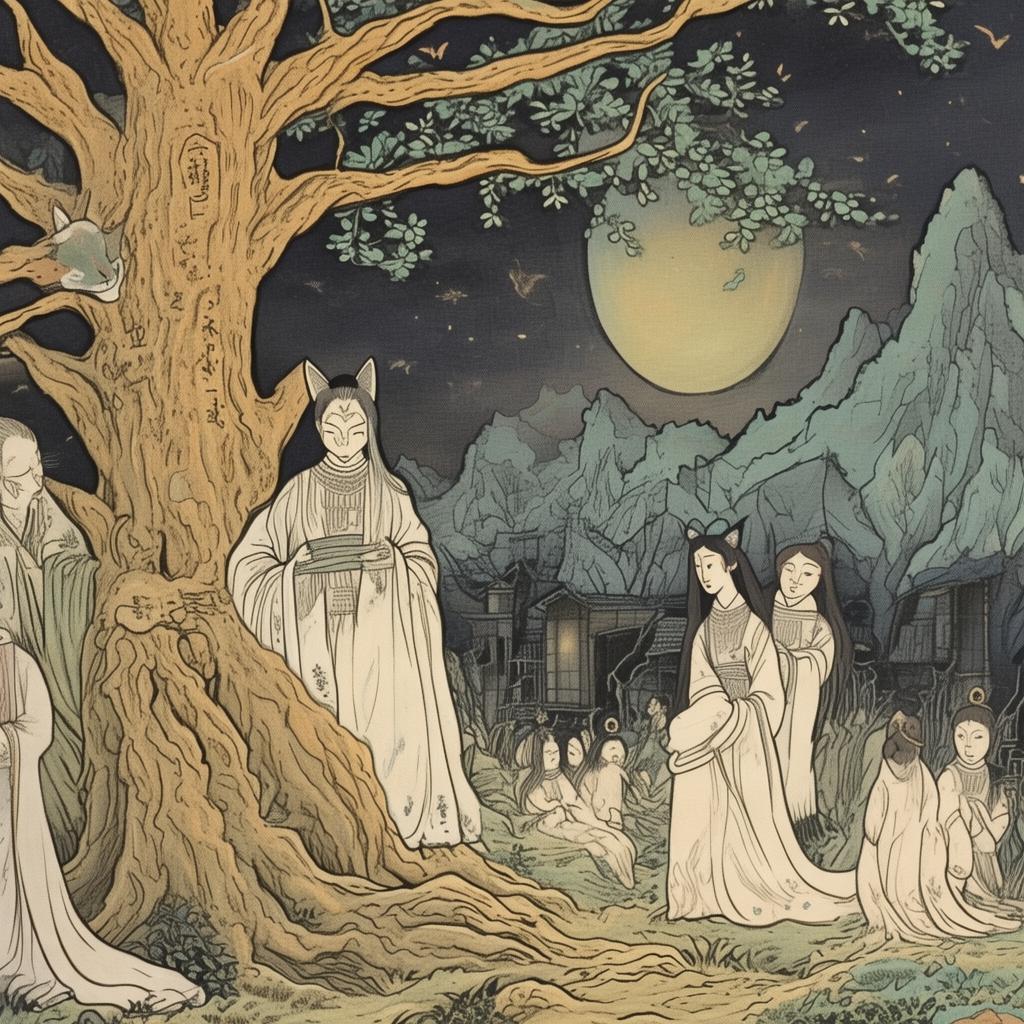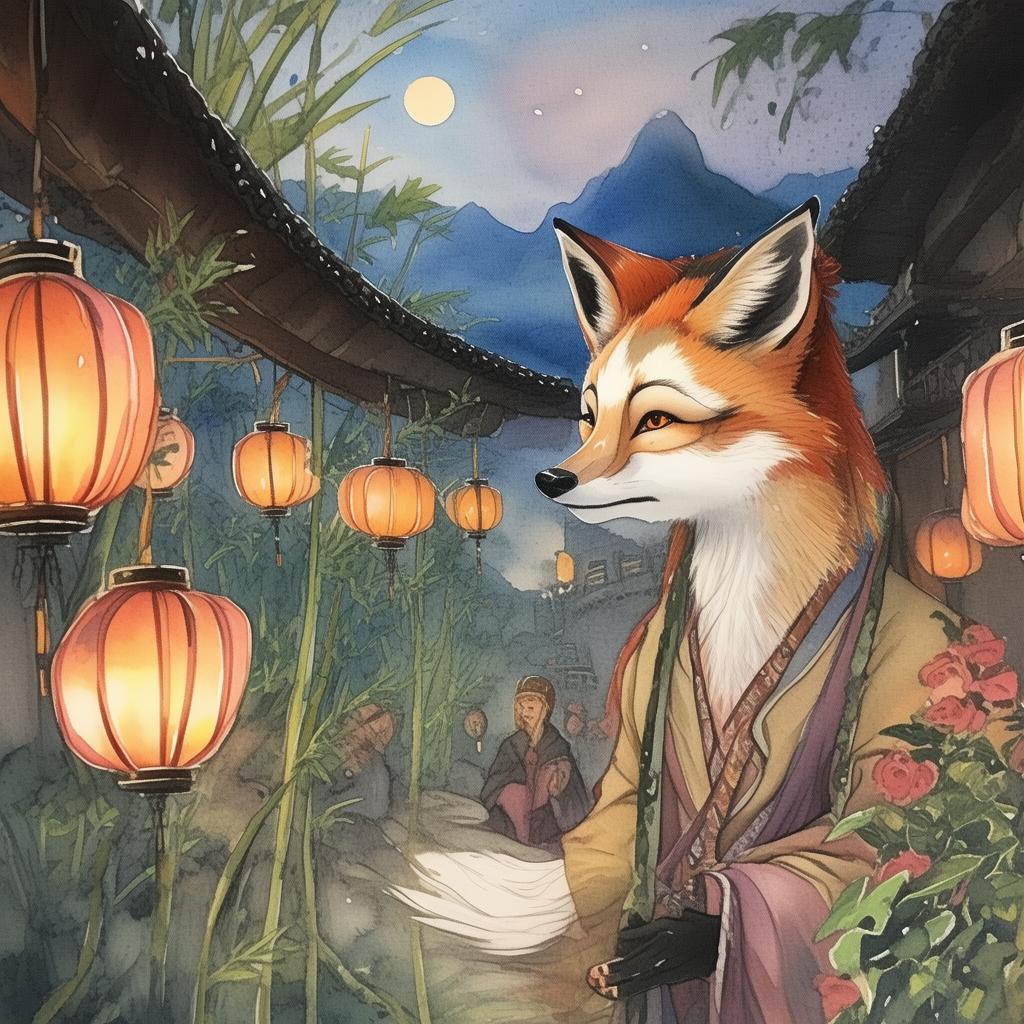The Lament of the Boundless Bard
In the heart of the ancient kingdom of Veritas, where the whispers of the wind were said to carry the echoes of the ages, there lived a bard named Eirian. His songs were not of love or war, but of the boundless, the endless, the unyielding essence of storytelling itself. His tales were so potent that they were said to shape the very reality of those who heard them. Yet, as with all things in the realm of Veritas, Eirian's stories were chained by the will of the fates, who deemed the boundless to be anathema to the ordered world.
Eirian's tale, "The Chatter of the Chained," was one of the most forbidden of all. It spoke of a boundless bard, whose words could not be contained by any form of binding. The story was said to be cursed, for it held the power to break the chains of any who heard it. Eirian, who had always been the embodiment of his art, found himself both the narrator and the subject of this fateful narrative.
One day, as Eirian sat beneath the ancient willow tree, his eyes were drawn to a curious artifact—a small, intricately carved wooden box, its surface adorned with runes that shimmered with an ethereal light. Intrigued, he opened the box to find a single, ancient scroll. The scroll was written in an ancient script, and it spoke of the boundless bard's quest to break free from the chains that bound his tale.
As Eirian read the scroll, he felt a strange compulsion to seek out the boundless bard of the story. He knew not why, but he felt it as surely as he felt the rhythm of his own heartbeat. With the scroll in hand, he set out into the unknown, his path illuminated by the light of the ancient runes on the scroll.
His journey led him through the Whispering Woods, where the trees spoke in hushed tones of old tales and forgotten secrets. He crossed the Singing River, whose waters sang of the past and future, and climbed the Mountain of Echoes, whose peaks were said to touch the heavens themselves.

At the peak of the Mountain of Echoes, Eirian found the boundless bard—a man with eyes that were as deep as the abyss, and a voice that could rend the very fabric of reality. The bard spoke of the curse, and of the chains that bound his tale. He told Eirian that the only way to break the chains was to tell the story of the boundless bard's escape, but to do so would require Eirian to face the fates themselves.
The fates, who were none other than the ancient spirits of the earth, sky, and sea, appeared before Eirian. They spoke of the power of storytelling, and of the responsibility that came with it. They demanded that Eirian tell the story of the boundless bard's escape, but with one condition: he must do so without the aid of any external form of binding, for the tale must be told as it was meant to be—unconfined and free.
Eirian agreed, and thus began his quest to tell the tale of the boundless bard. As he spoke, the world around him began to change. The trees whispered his words, the river sang them, and the mountains echoed them back. The tale took on a life of its own, and Eirian found himself not just the narrator, but the protagonist as well.
As he reached the climax of the story, the boundless bard faced his ultimate challenge—the chains that bound him were not of metal or wood, but of his own story. The bard must choose between remaining bound to his tale and freeing himself to live a life of his own. In a moment of profound sacrifice, the bard chose to break free, and in doing so, he shattered the chains that bound Eirian's own tale.
The fates, recognizing the purity of the bard's heart, granted him the ability to free the boundless bard's story. With a final, resounding note, Eirian's voice pierced the heavens, and the tale of the boundless bard's escape was released into the world.
As the tale was set free, the kingdom of Veritas was transformed. The boundaries that had once separated the world into ordered and chaotic realms began to blur. The fates, now bound to the power of storytelling, could no longer control the tales that shaped the world.
Eirian returned to his village, his voice now a beacon of freedom. The boundless bard's story had become a legend, a tale that spoke of the power of choice and the beauty of liberation. And so, the bard who had been bound by the whims of fate, now walked among the people as a free man, his story echoing through the ages, unchained and boundless.
✨ Original Statement ✨
All articles published on this website (including but not limited to text, images, videos, and other content) are original or authorized for reposting and are protected by relevant laws. Without the explicit written permission of this website, no individual or organization may copy, modify, repost, or use the content for commercial purposes.
If you need to quote or cooperate, please contact this site for authorization. We reserve the right to pursue legal responsibility for any unauthorized use.
Hereby declared.









